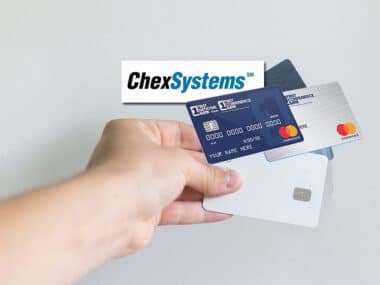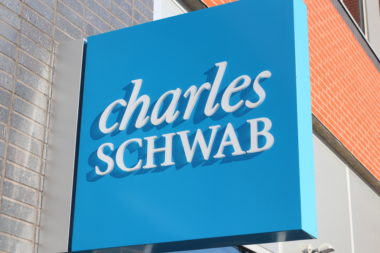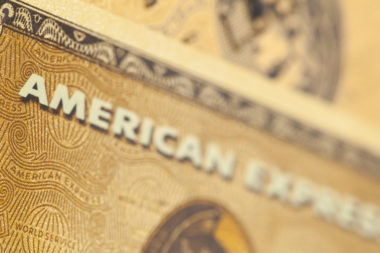You open a savings account with the intention of storing your money for when you need it. The purpose of a savings account is to keep your money in the bank and allow it to earn interest while still having easy access if you need it.
While there are different types of savings accounts, most of them are created to simply store money and not necessarily to spend. Banks pay interest on your savings account balance. However, there are regulations in place that make it harder for you to conduct multiple transactions from the account. Learning more about what you can use your savings account for helps ensure you’re getting the most out of your finances.
Table of Contents
Can You Write Checks From a Savings Account?
In most cases, you cannot make direct payments from savings accounts. Most banks don’t allow you to write checks from your savings account. By not issuing you personal checks along with your savings account, the bank hopes to discourage you from using this account in the same manner you would your checking account.
If you’re still set on paying bills from your savings account, consider whether your bank allows you to make direct debit payments from the account. In a direct debit transaction, you authorize a specific amount to be taken from your account and provided directly to a payee. Generally, direct debit payments are used for recurring expenses, such as a utility or cable bill.
While direct debit payments ensure that you pay these bills regularly on time, there are some risks associated with these transactions. You must consistently keep an eye on your savings account balance to ensure enough money is present at the right time to cover these withdrawals. If not, your bank may charge overdraft fees.
Direct debit transactions are also risky because if you believe a payee has received unauthorized payment or a payment in error, it may be hard to dispute. When you use direct debit transactions with your savings account, you may not leave enough funds in the account to benefit from the interest rate your bank provides.
Why You Shouldn’t Make Payments From a Savings Account?
It’s not a good idea to make payments from your savings account due to transaction limits and fees. Banks are legally obligated to set transaction limits on savings accounts to discourage you from using these accounts as you would your checking account.
Federal law imposes Regulation D, which limits you to six saving account withdrawals per month. However, on April 28, 2020, the Federal Reserve suspended these saving account transaction limits in light of the COVID-19 pandemic until further notice. Savings account holders are currently allowed to make unlimited withdrawals on savings accounts without penalty.
When transaction limits are in place, however, it’s hard to conduct regular business with your savings account. It’s also important to pay attention to banking fees if you engage in savings account transactions. If transaction limits are in place and you exceed your six-per-month limit on withdrawals, your bank charges a fee for each additional withdrawal.
Some banks require you to keep a certain balance in your account to avoid monthly maintenance fees. Making payments from your savings account may make it harder to ensure your balance is sufficient.
What Can You Do With a Savings Account?
If you’re intent on using your savings account to conduct business, consider opening a money market account instead. You can still earn interest and you may have more flexibility to make payments from the account, including with personal checks or a debit card.
While a regular savings account is generally used to simply store money, there are other ways you can use the account. You can’t write third party checks or personal checks directly from your savings account, but you may be able to find a workaround if you want to conduct transactions from this account.
Transfer Money From Checking Accounts
Since you can’t write a check from your savings account, consider transferring the money to your checking account first. From there, you can write a check or use a debit card to make a payment.
This transaction is considered a withdrawal from your savings account so you’re limited to only six per month when regulations are enforced. If you want to use this strategy to pay your bills, plan ahead to ensure you transfer the correct amount before making payments from your checking account.
Withdraw Cash
When you use an ATM or bank teller to withdraw cash directly from your savings account, it doesn’t count against your monthly transaction limit. If you don’t have a checking account, you can use this strategy if you want to use your savings account to make payments.
However, some vendors, such as utility or cable companies, may not accept cash as a form of payment. Check with your payee before you attempt to send cash.
Cashier’s Check or Money Order
Another workaround is to use a cashier’s check or money order to make payments from your savings account. While the bank doesn’t allow you to write personal checks, you can ask a bank teller to provide you with a cashier’s check or money order using funds directly from your savings account.
Most companies and payees accept cashier’s checks or money orders as payment since they’re generally considered secure transactions. However, if you obtain this form of payment from an authorized vendor, you may be required to pay a fee. If you pay all your bills using this method each month, these fees can add up quickly.
While you can’t write personal checks or use a debit card with your savings account, you can use these alternative ways to make payments from your savings account. However, your savings account is primarily designed to store easily accessible money. Before using it to make payments, consider payment methods that cater to your financial goals.
Image Source: https://depositphotos.com/





